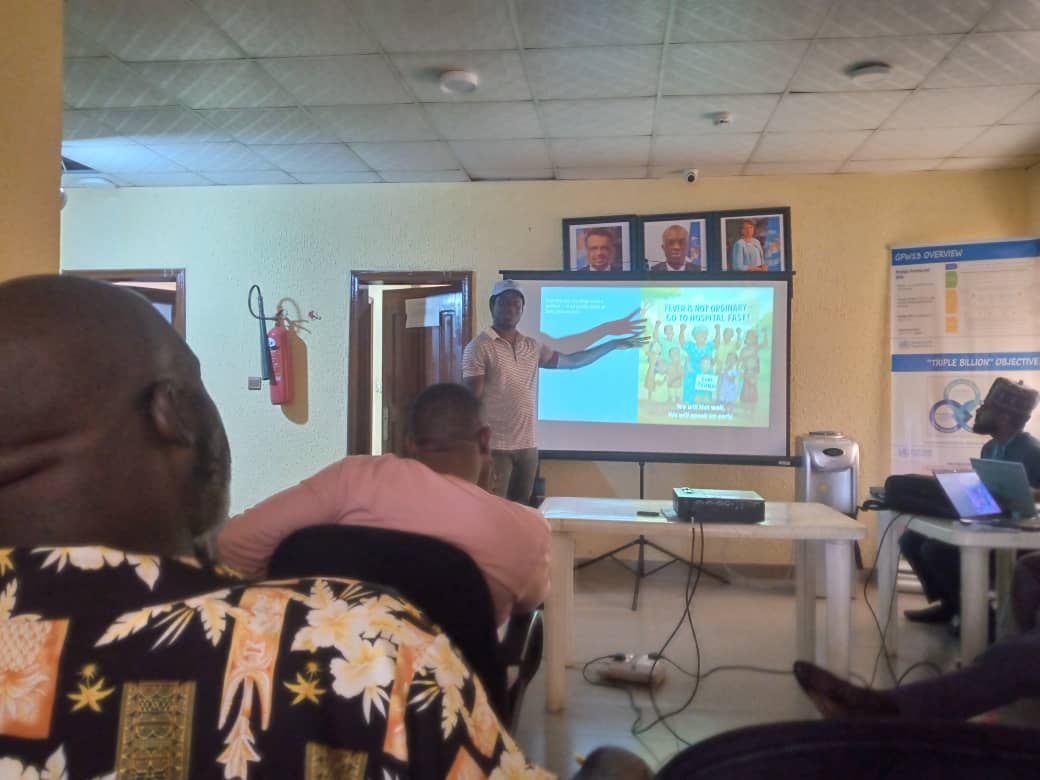LASSA FEVER: Benue Records 156 Suspected Cases, Six Deaths In Six Months

•By Admin

MAKURDI – THE Benue State Epidemiologist, who is also the State Manager, Public Health and Emergency Operation Center (PHEOC), Dr Msuega Asema, has stated that Benue recorded 156 suspected cases of Lassa Fever, from February, 2025 to date, adding that the case fatality rate for 2025, is 40 percent.
He explained that out of the number, 15 cases have been confirmed, six deaths recorded and 9 cases of probable deaths that are not among the 15 cases that were confirmed.
Dr Asema, disclosed this on the sidelines of a stakeholders’ meeting on the review and validation of a graphic storybook and other Information Education and Communication (IEC) materials for Lassa Fever in Makurdi.
The meeting which was organized by the World Health Organization (WHO), in collaboration with the State Ministry of Health and Human Services, and is aimed at looking at things that need to be done differently in order to ensure the prevention and early detection of Lassa Fever in the state.
Speaking at the occasion, the State Coordinator, WHO, Dr Mohammed Abdulkarim, who urged members of the public to shift from reactive to proactive measures in the fight against Lassa Fever, said the meeting also intends to look at why the outbreak of Lassa Fever has persisted in the state, over the years and find ways of nipping its spread in the bud.
While he lamented that the disease was spreading rapidly, he stated that there was the need for attitudinal change in health and nutritional practices to prevent infections rather than just focusing on treatment.
But according to the State Epidemiologist, Dr Asema, said, “The seven Local Government Areas (LGAs), with the suspected cases include, Ukum, Makurdi, Guma, Okpokwu, Vandeikya, Gwer-West and Otukpo LGA.
“From February to date, we have had 156 suspected cases. 15 have been confirmed. Six deaths recorded from the confirmed cases and 9 probable deaths that are not among the 15 confirmed cases.
“That’s people who have come in contact with positive cases but for one reason or the other, maybe they did not go to the hospital on time or they went but sample was not taken but everything clinically shows it is Lassa fever. But because there is no laboratory confirmation, we tag them as probable cases and when they die, we say it’s probable death from Lassa fever”, he said.
Dr Asema, earlier said the current approach would focus more on prevention, early detection and early treatment and safety measures such as educating the people to cover their food at all times and hand washing.
He said, “We have not deactivated our response because we are still having cases despite the change in the year’s season. It’s an outbreak that is more common during the dry season. But we do have cases, especially last year and this year (2025), we have significant numbers of cases during rainy season.”
Dr Jerry Agber, the One Health Coordinator in Benue state, in his presentation, urged people not to ignore unusual fevers, warning that Lassa Fever is real. He advised the public to keep food covered and visit the hospital immediately when symptoms arise.
In a related development, the World Health Organization (WHO), in collaboration with the State Ministry of Health and Human Services have conducted a training for the media and healthcare workers, particularly those in the Primary Healthcare centers (PHCs) across the council wards that recorded more cases of Lassa Fever.
Addressing participants at the training, the State Coordinator, WHO, Dr Mohammed Abdulkarim said, “What makes this particular engagement different is the approach because for the first time we are hoping the communities will be in charge in terms of taking the initiative in controlling (the spread of) Lassa Fever and that’s why we are doing this training.
“And of course of all the states in Nigeria, Benue state has been selected purposely because of the dedication of the staff of the Public Health and Emergency Operation Center (PHEOC), as well as those of you in the field across the healthcare facilities.
“A lot of trainings have previously been done in building the capacity of health workers in order to know the signs and symptoms of Lassa Fever. But we felt that there are serious gaps in the communities; we even still have a lot of wrong perceptions in respect to Lassa Fever”, hence the need for the training.
In his presentation at the training, the State Epidemiologist, Dr Asema highlighted issues of none funding, lack of logistics support to conduct case investigation, contact tracing, and safe dignified burial for confirmed cases and deaths were some of the major challenges faced by those managing cases of Lassa Fever in Benue.

He further explained that since funding was inadequate, the dead were handed directly to family members for burial instead of the burial being carried out by the Safe Burial team, to ensure that the burial of Lassa fatalities were conducted according to set standards, he emphasized.
•INDEPENDENTNG.

